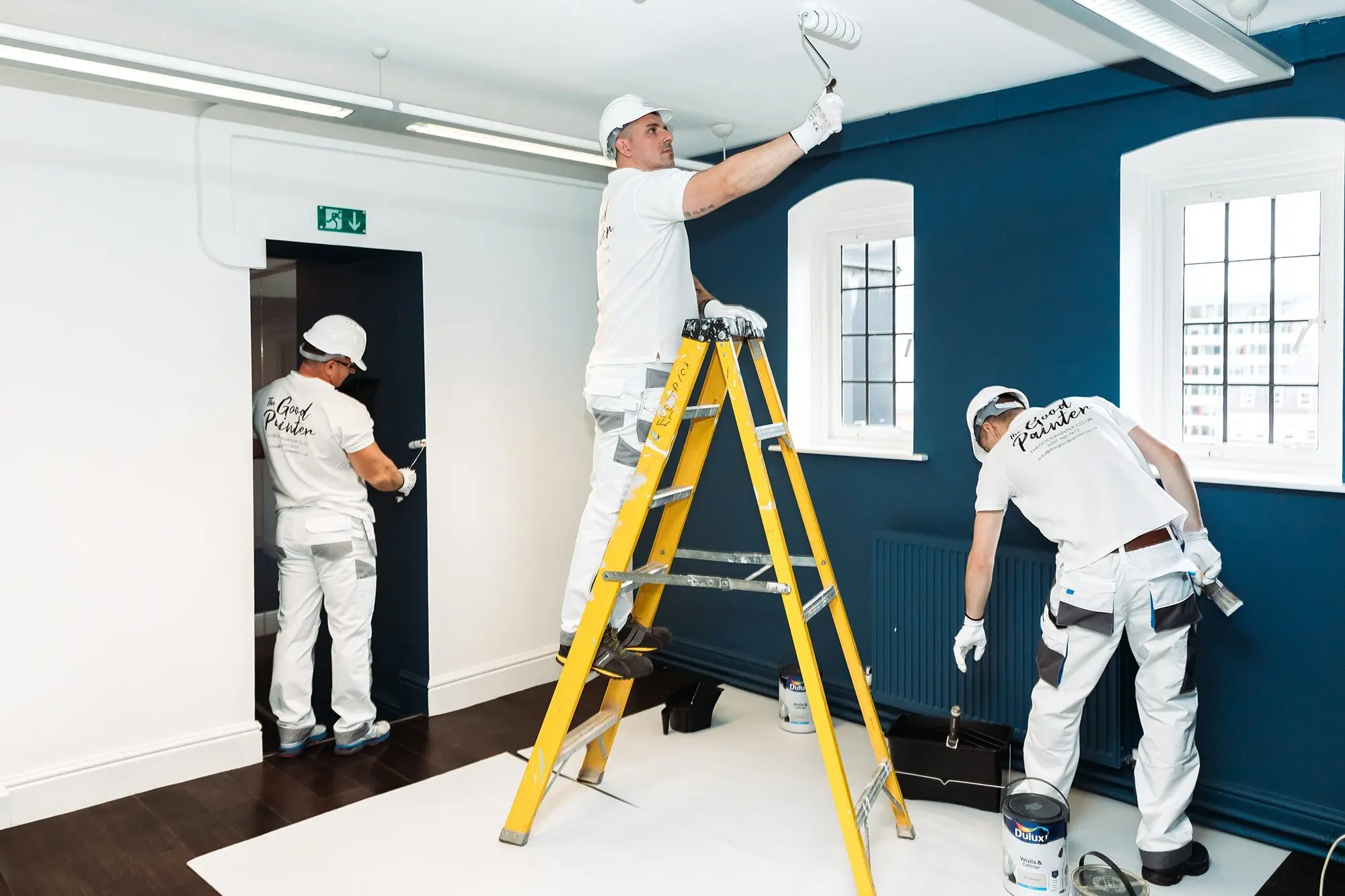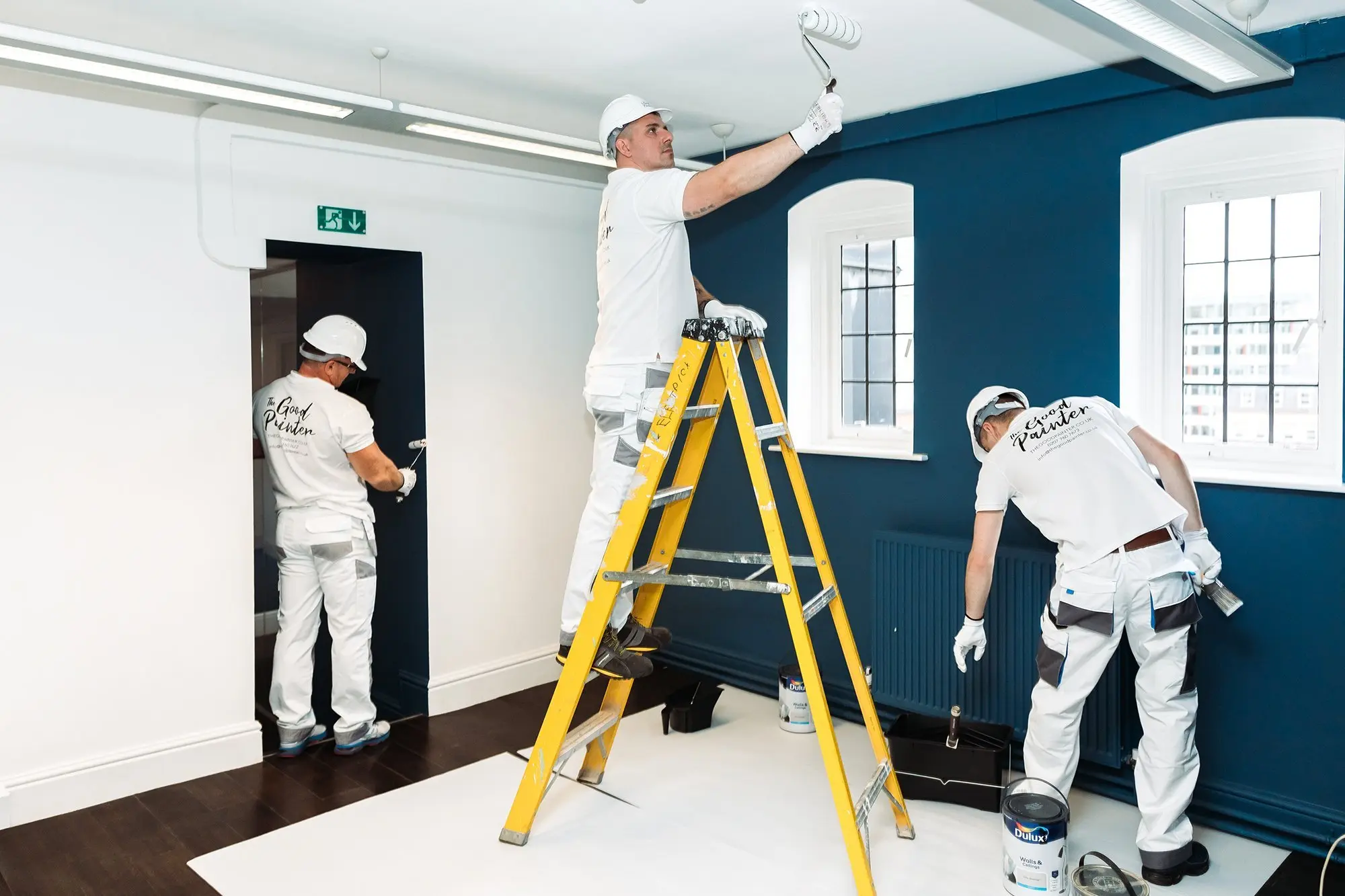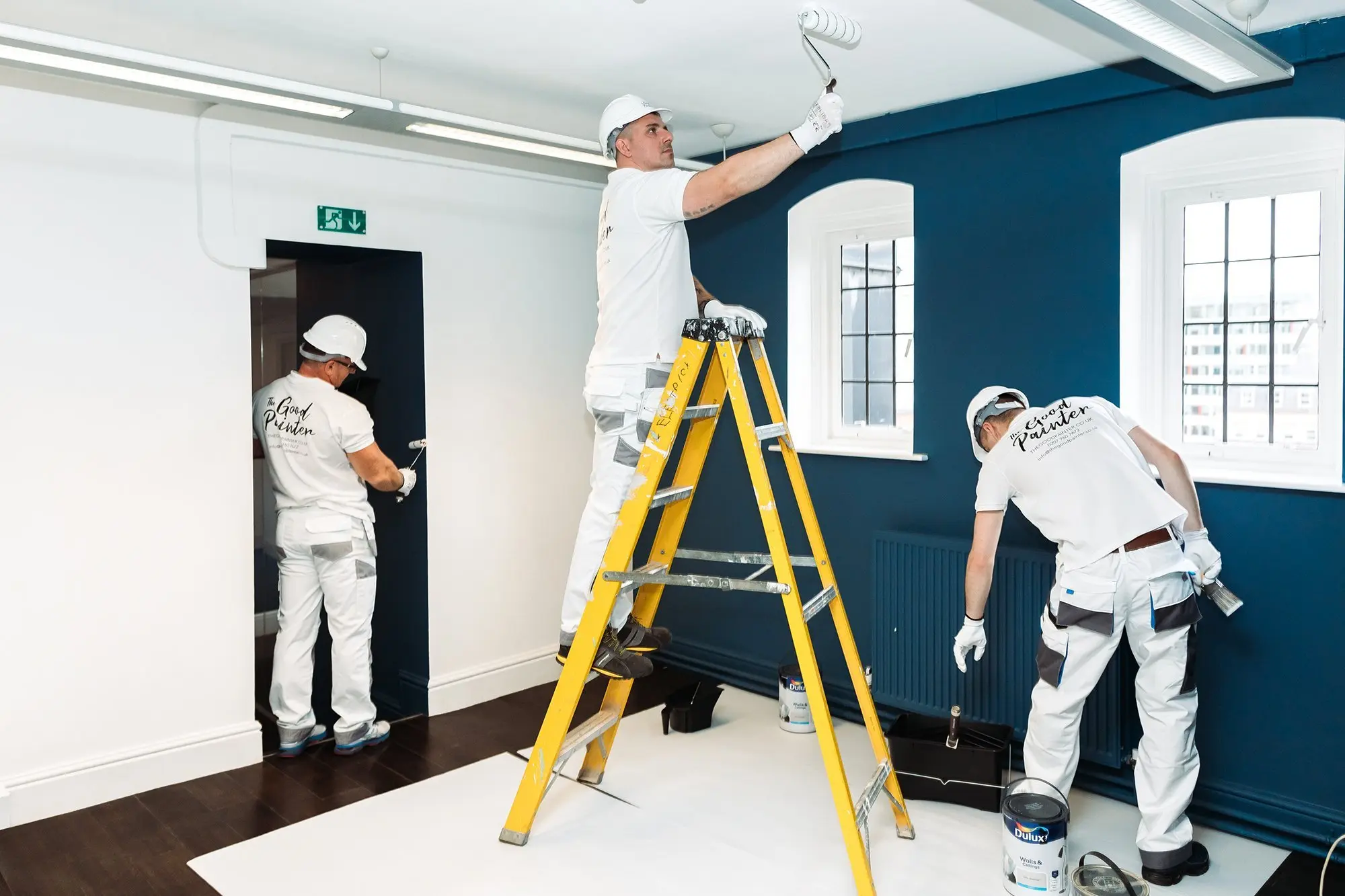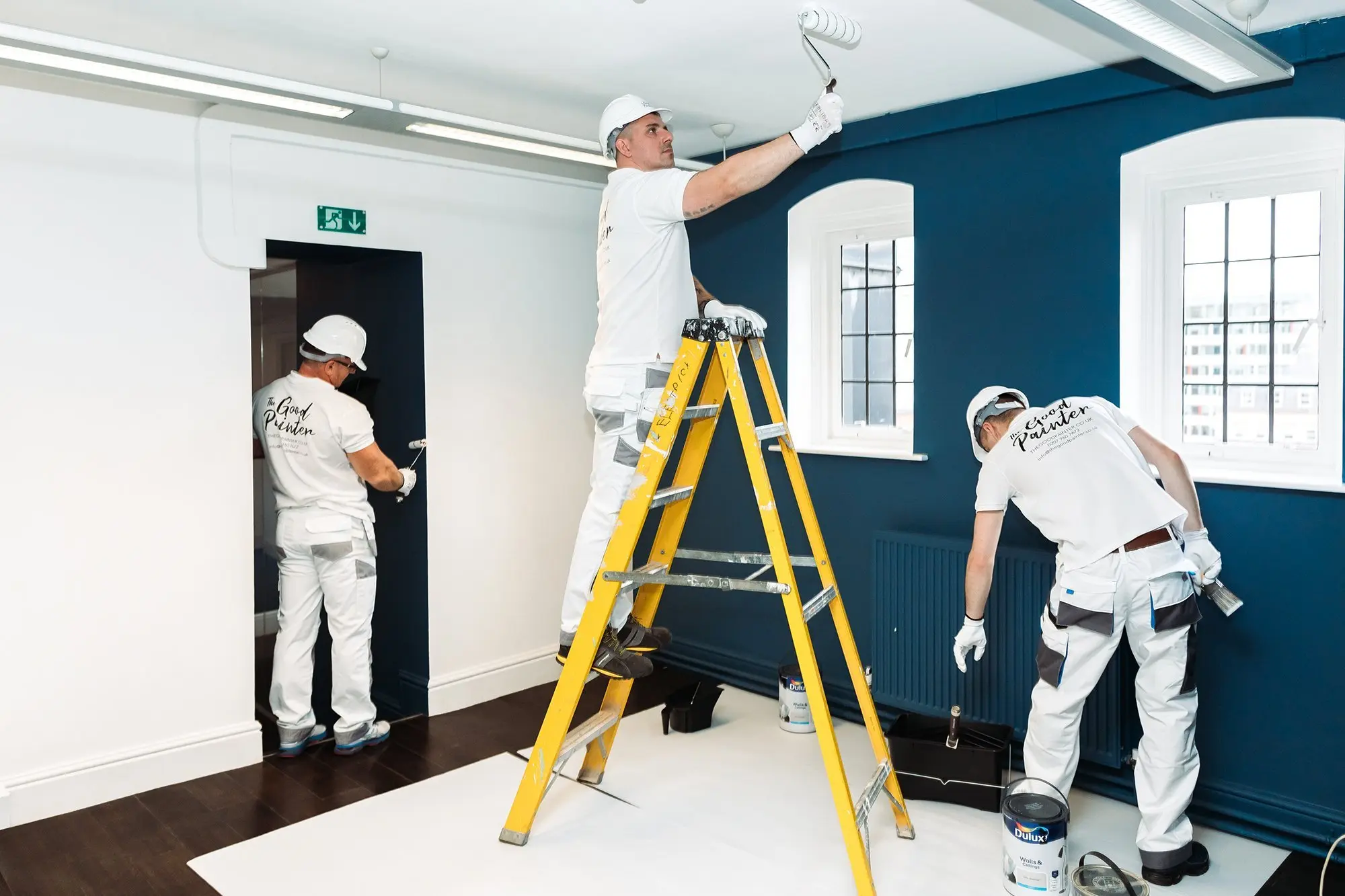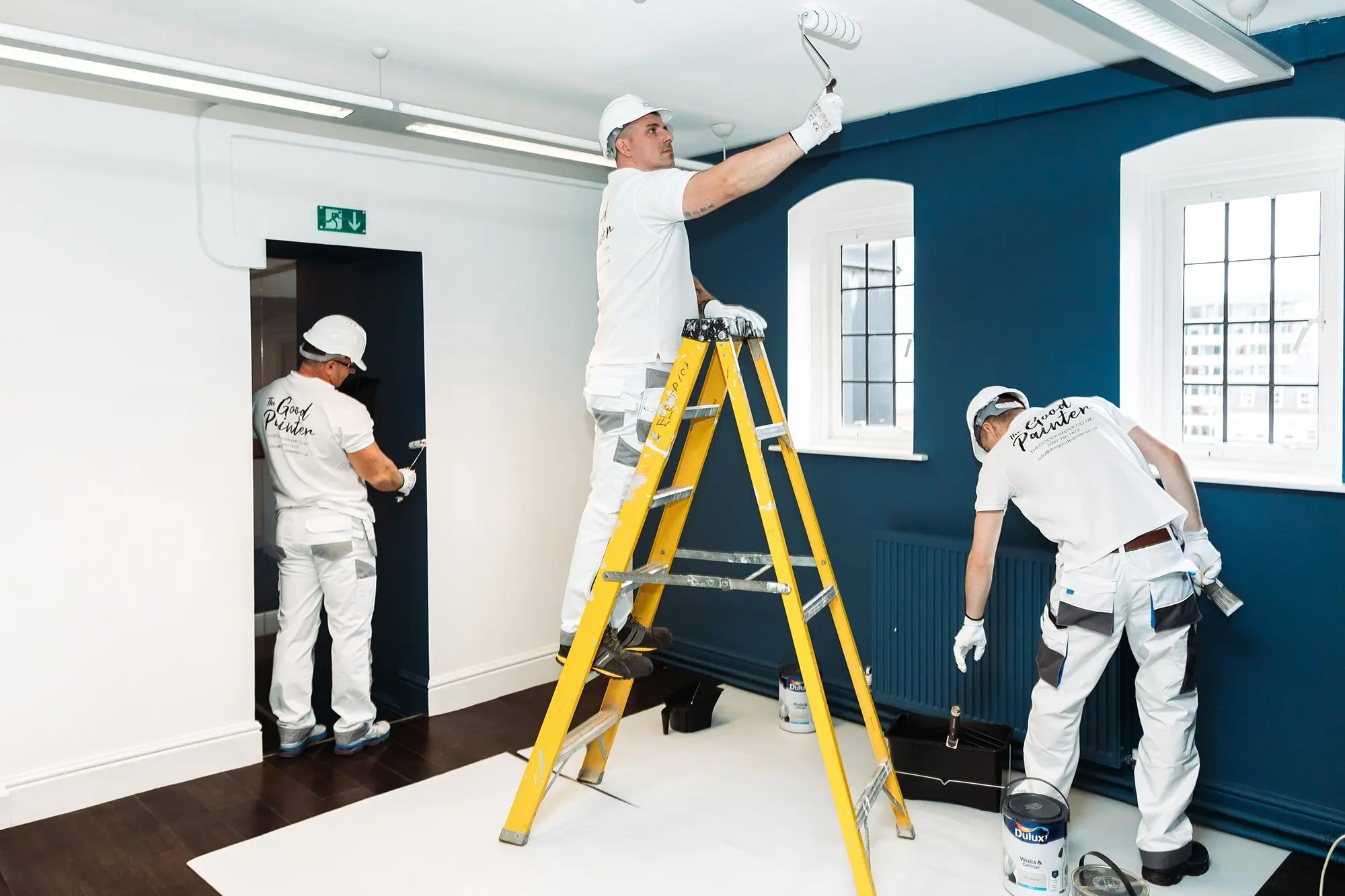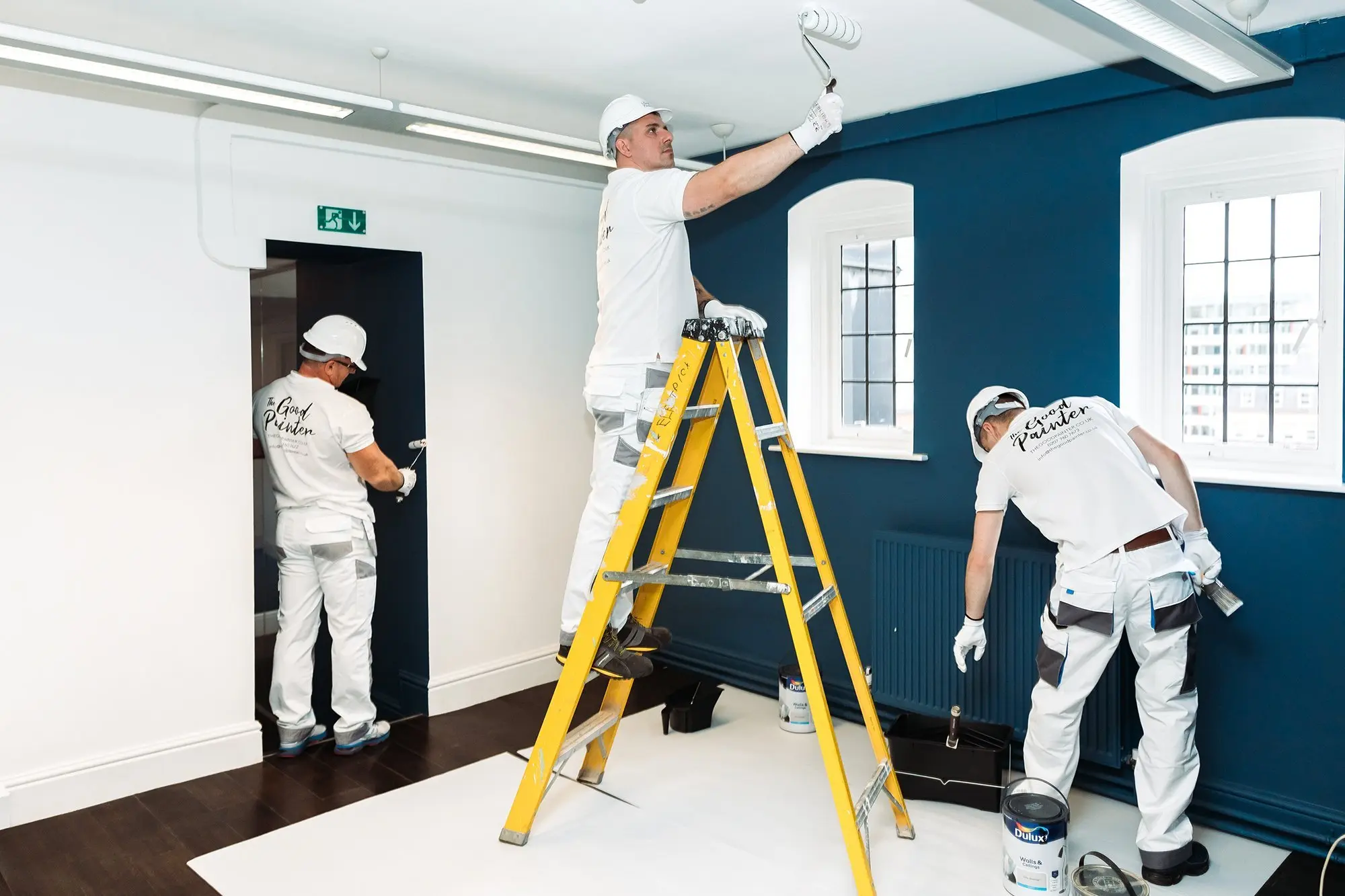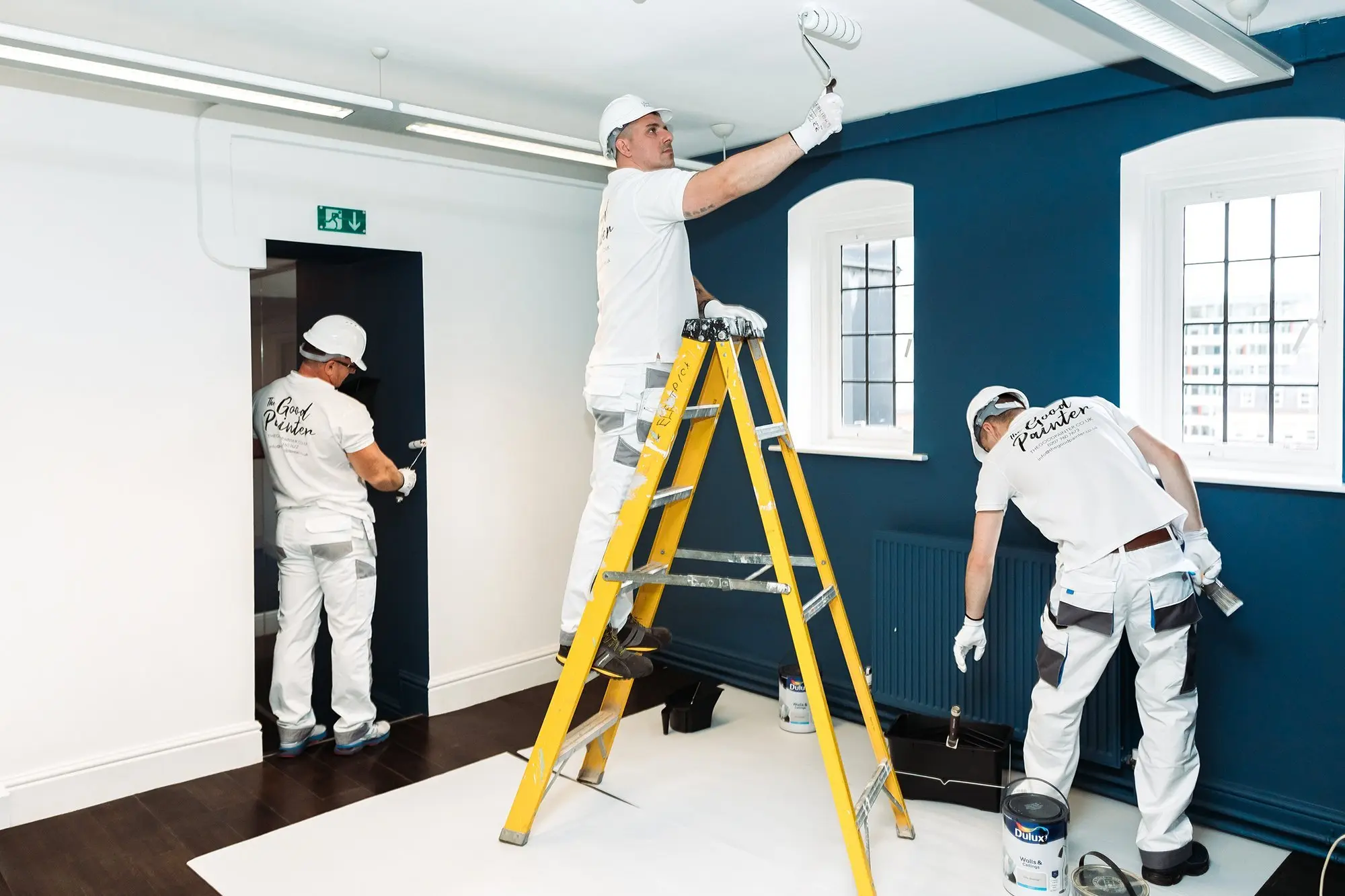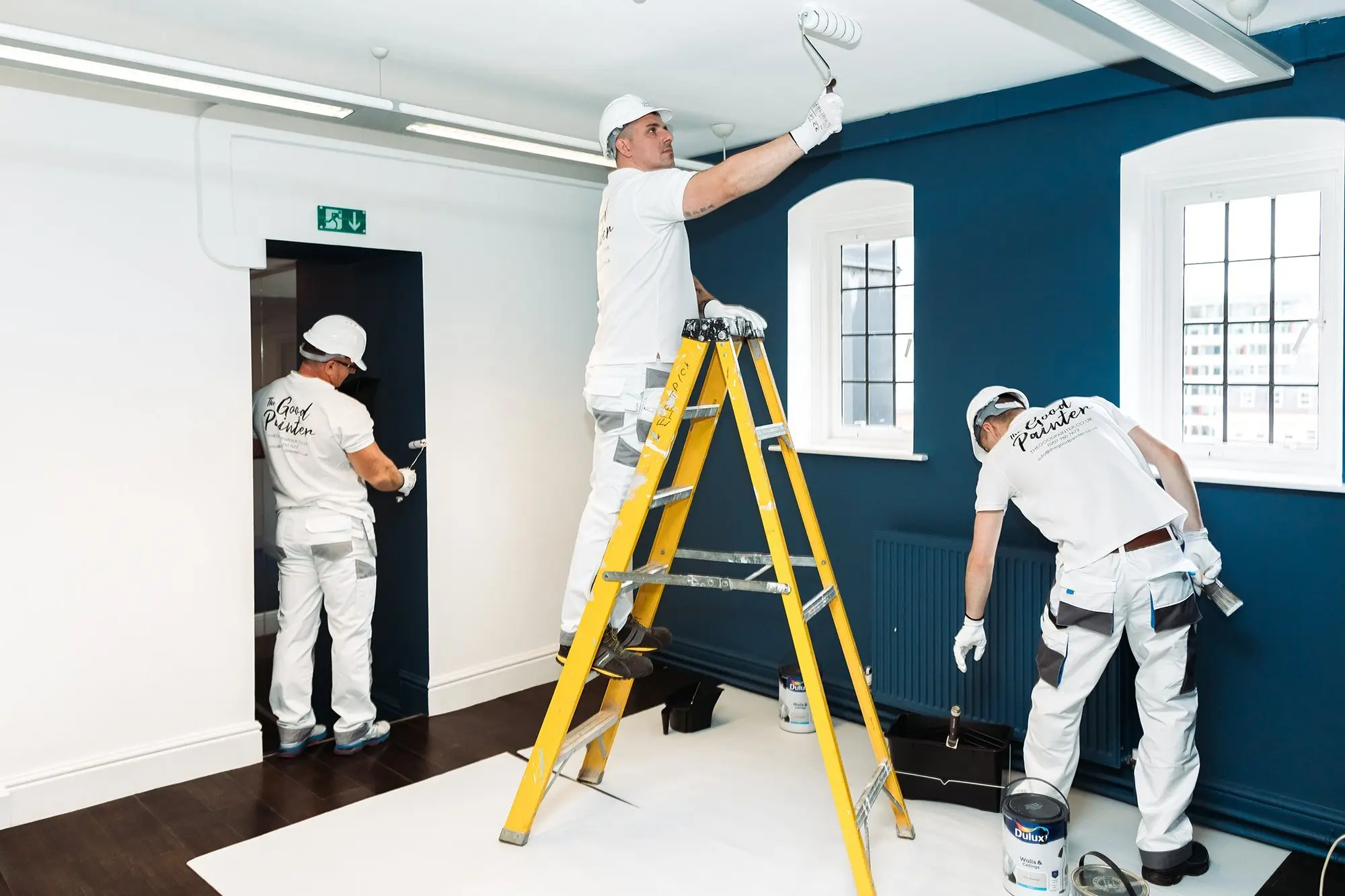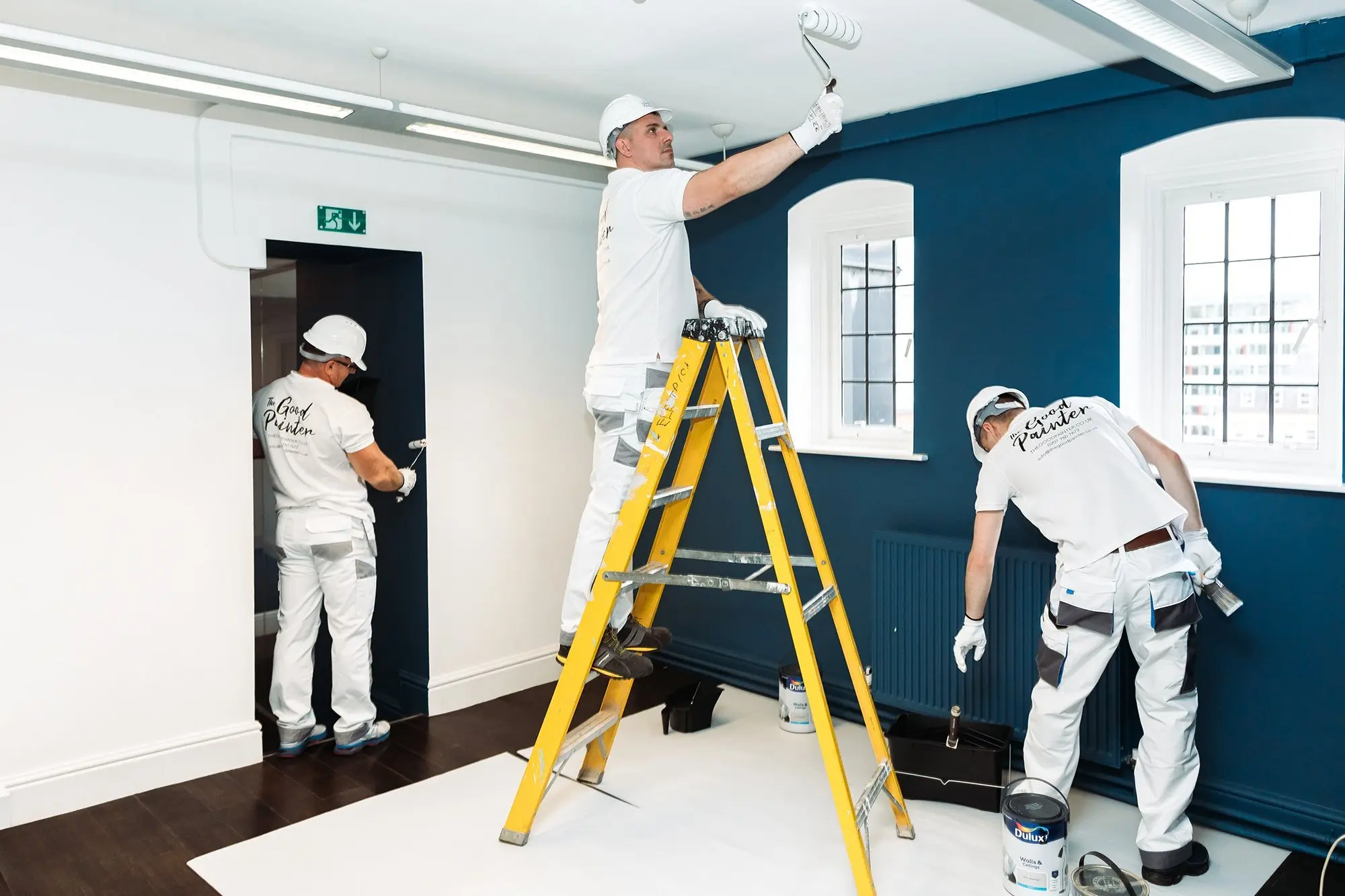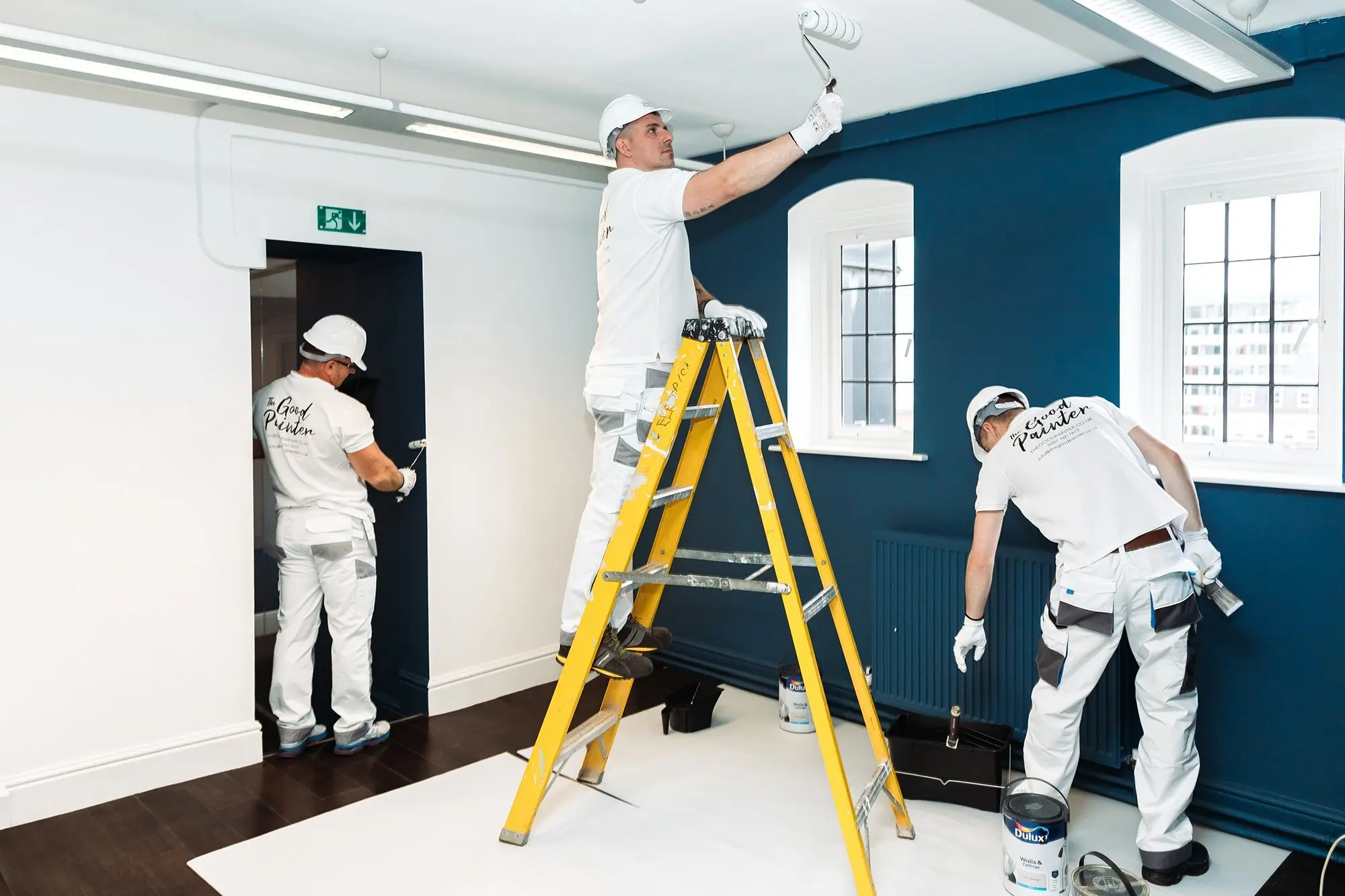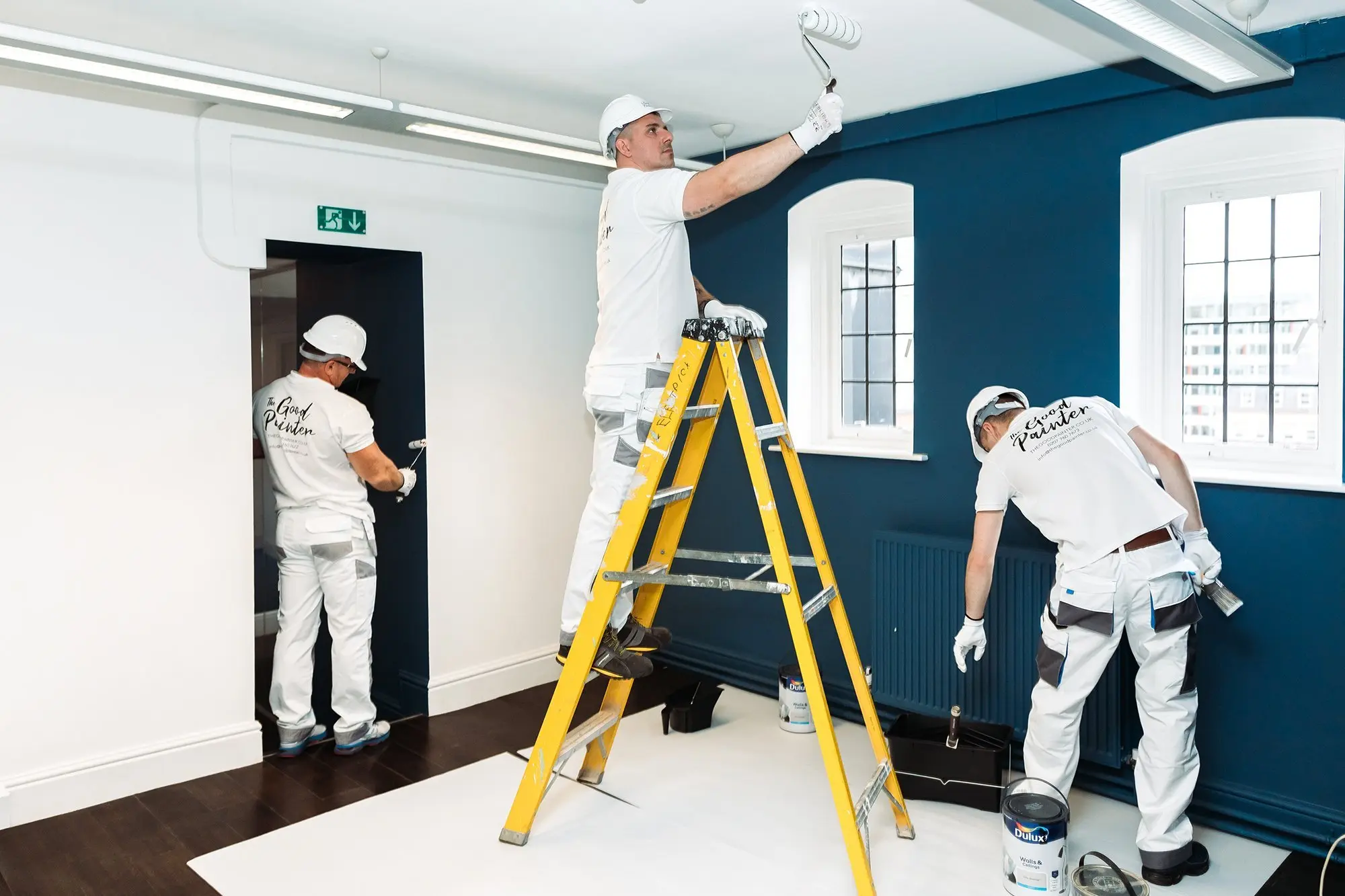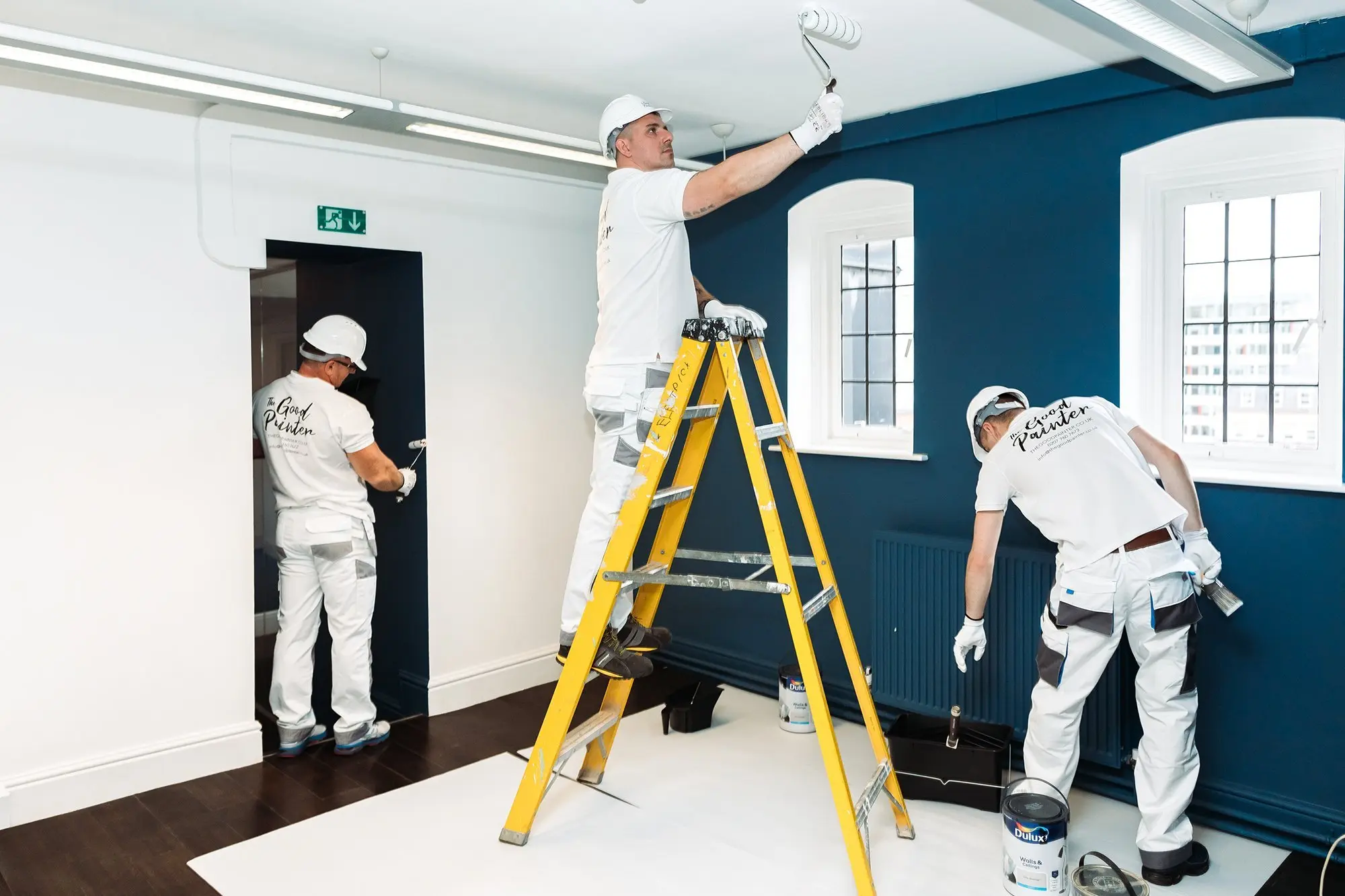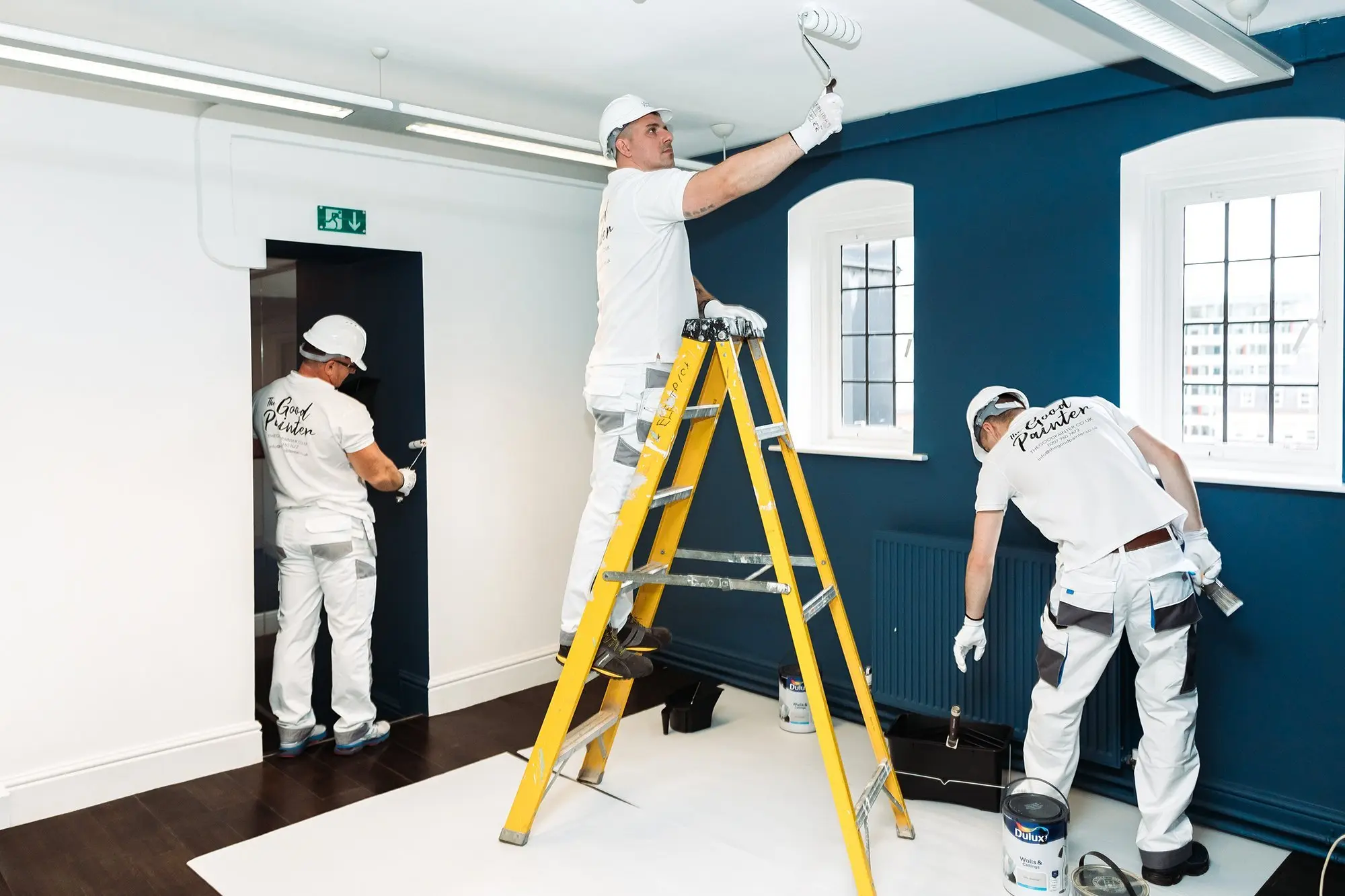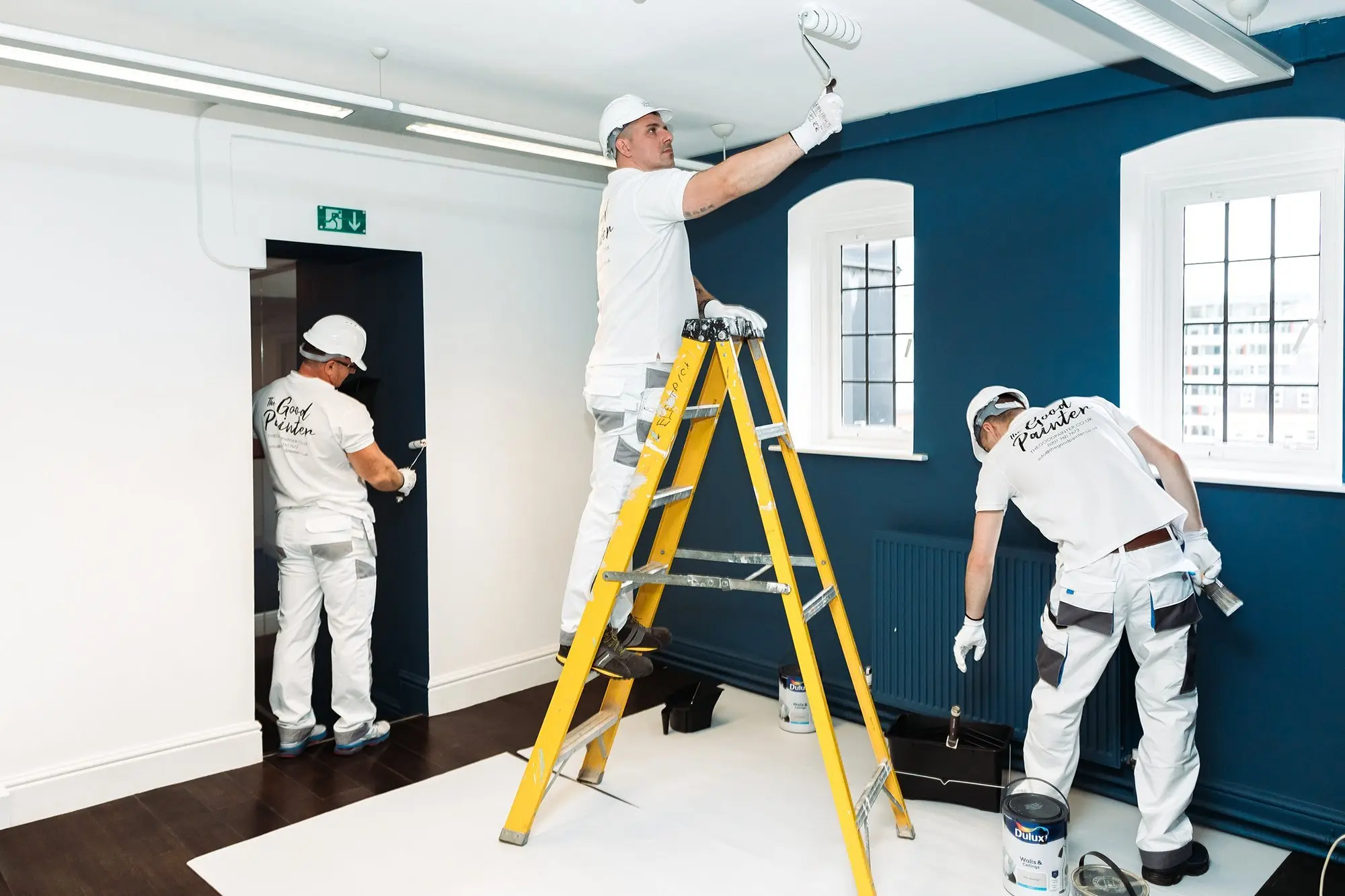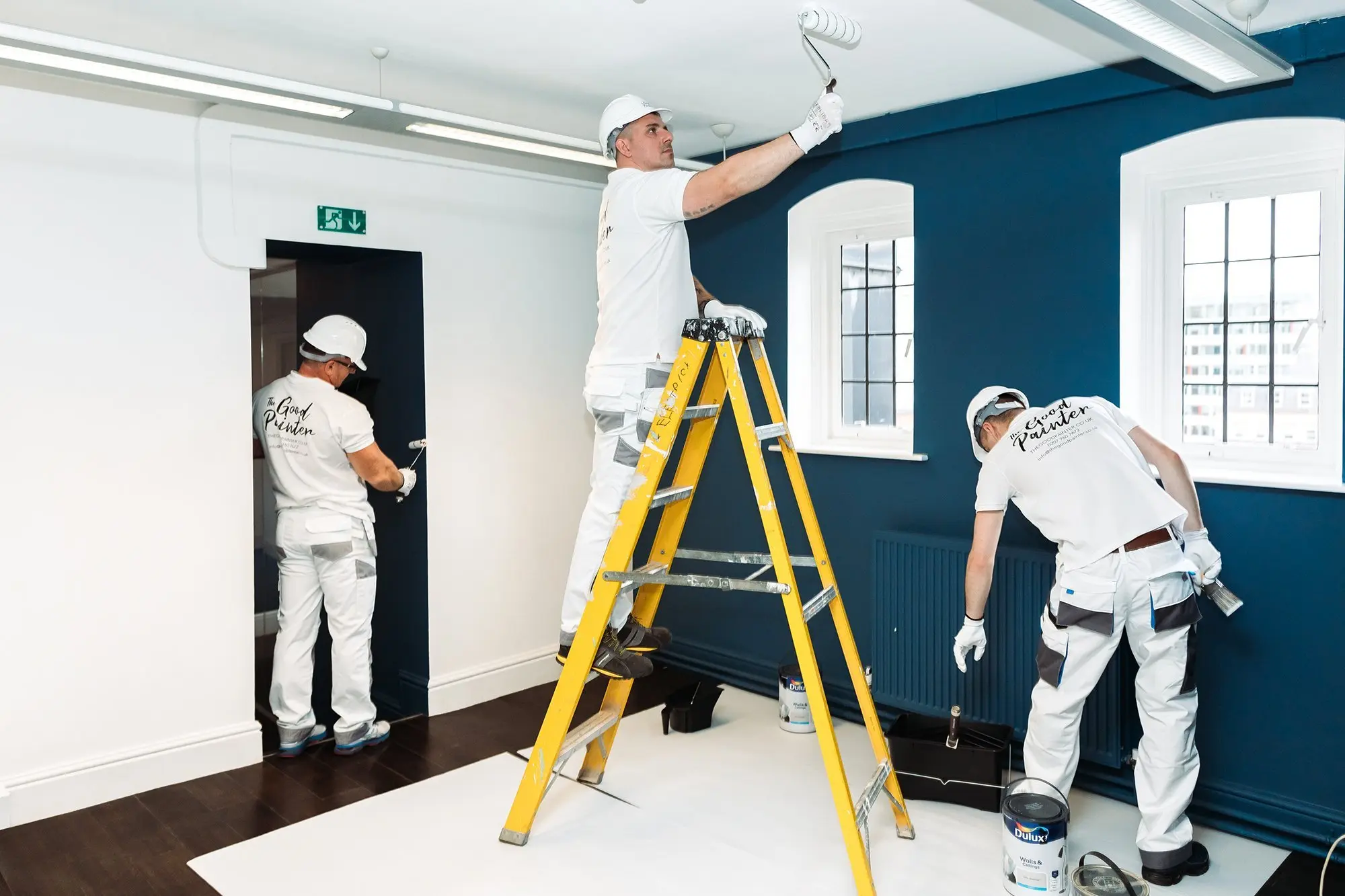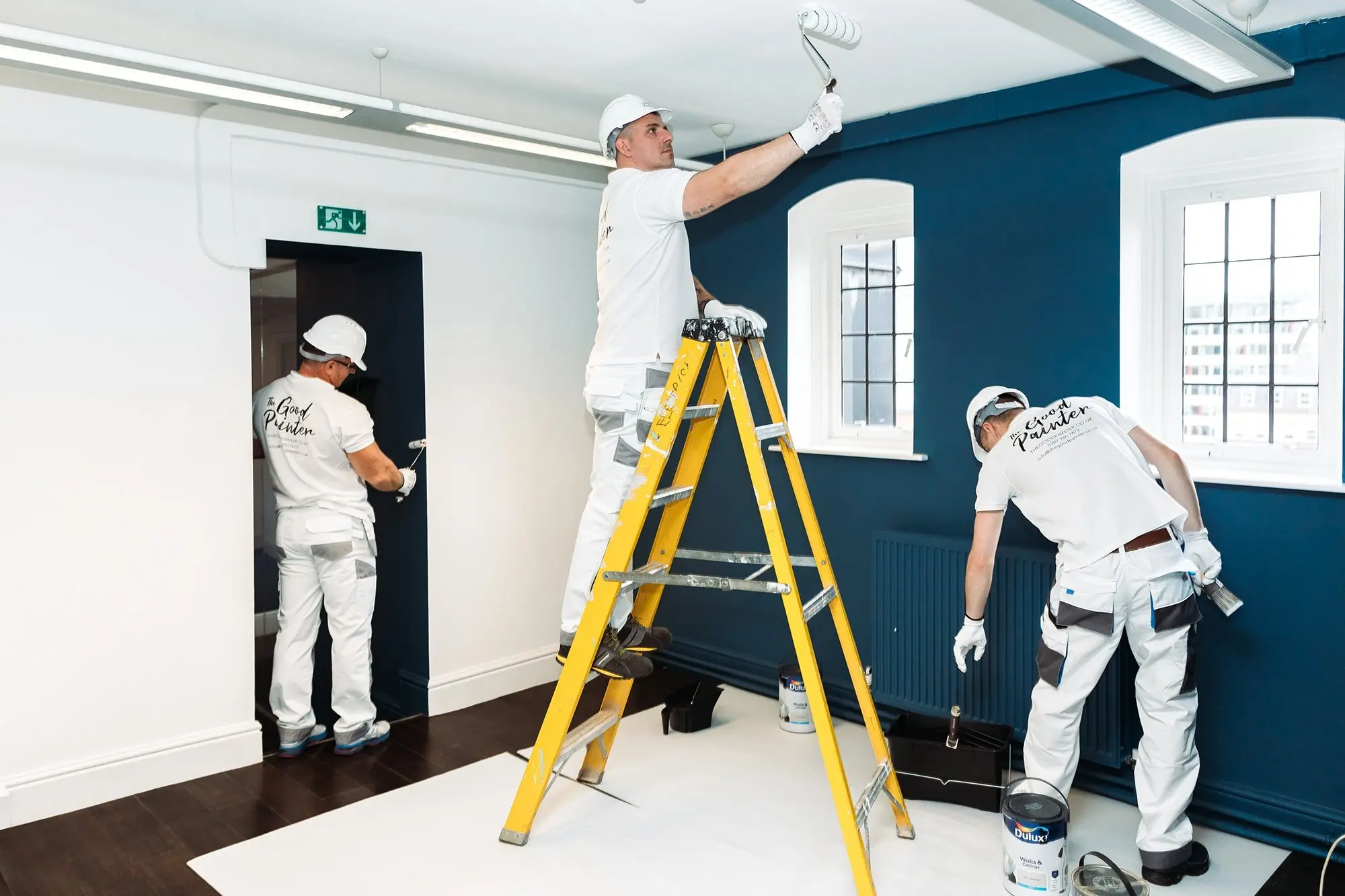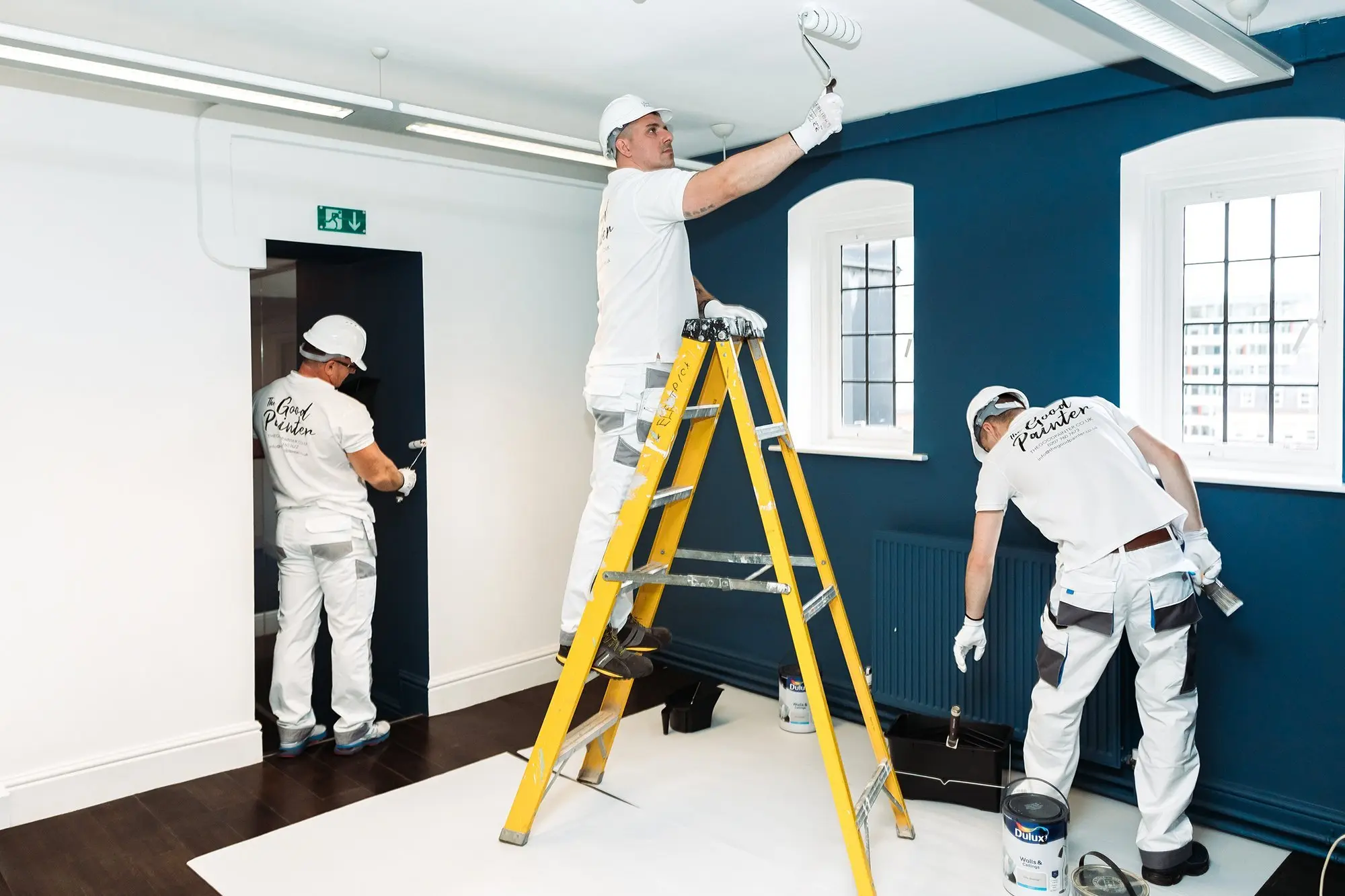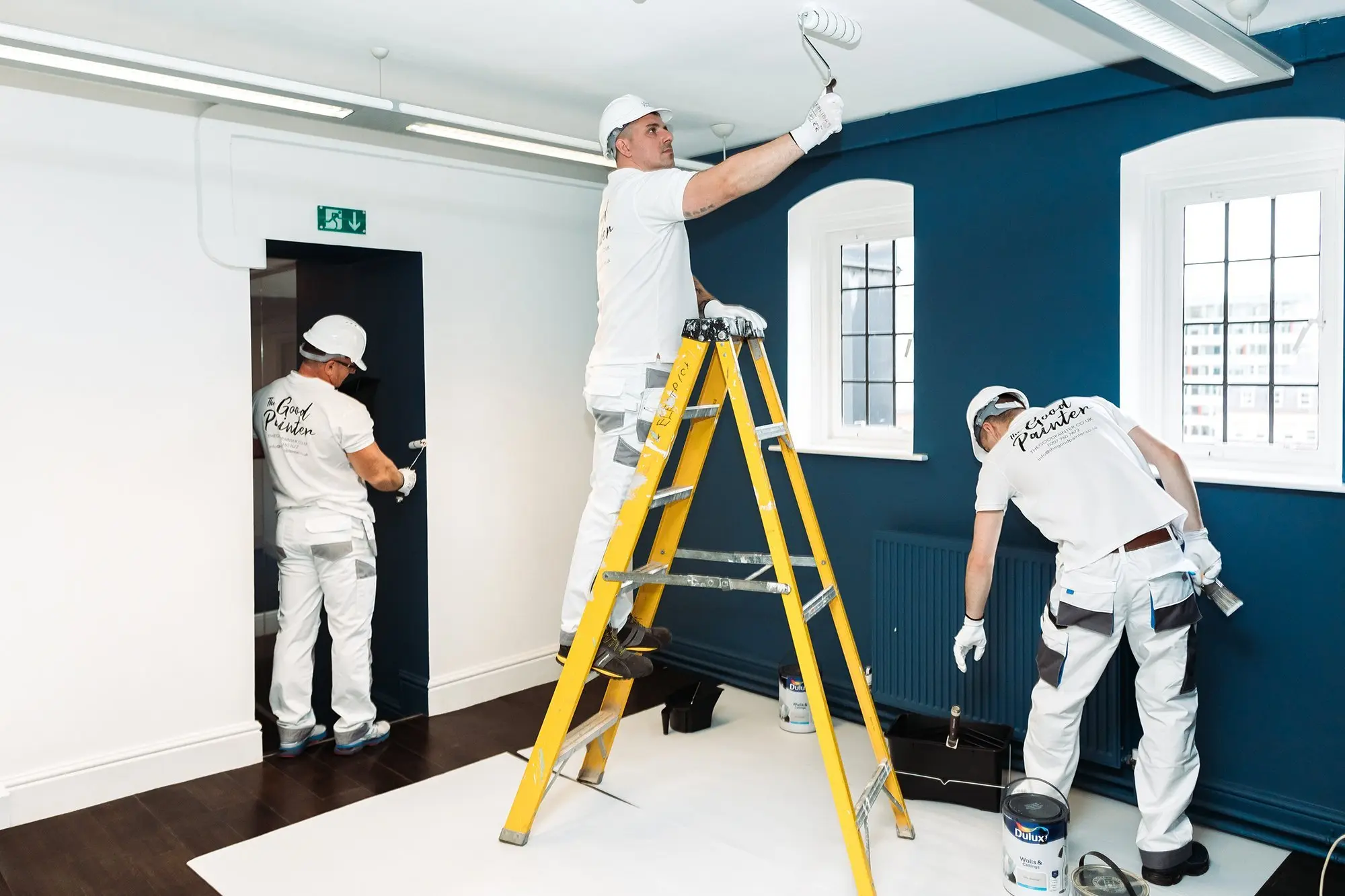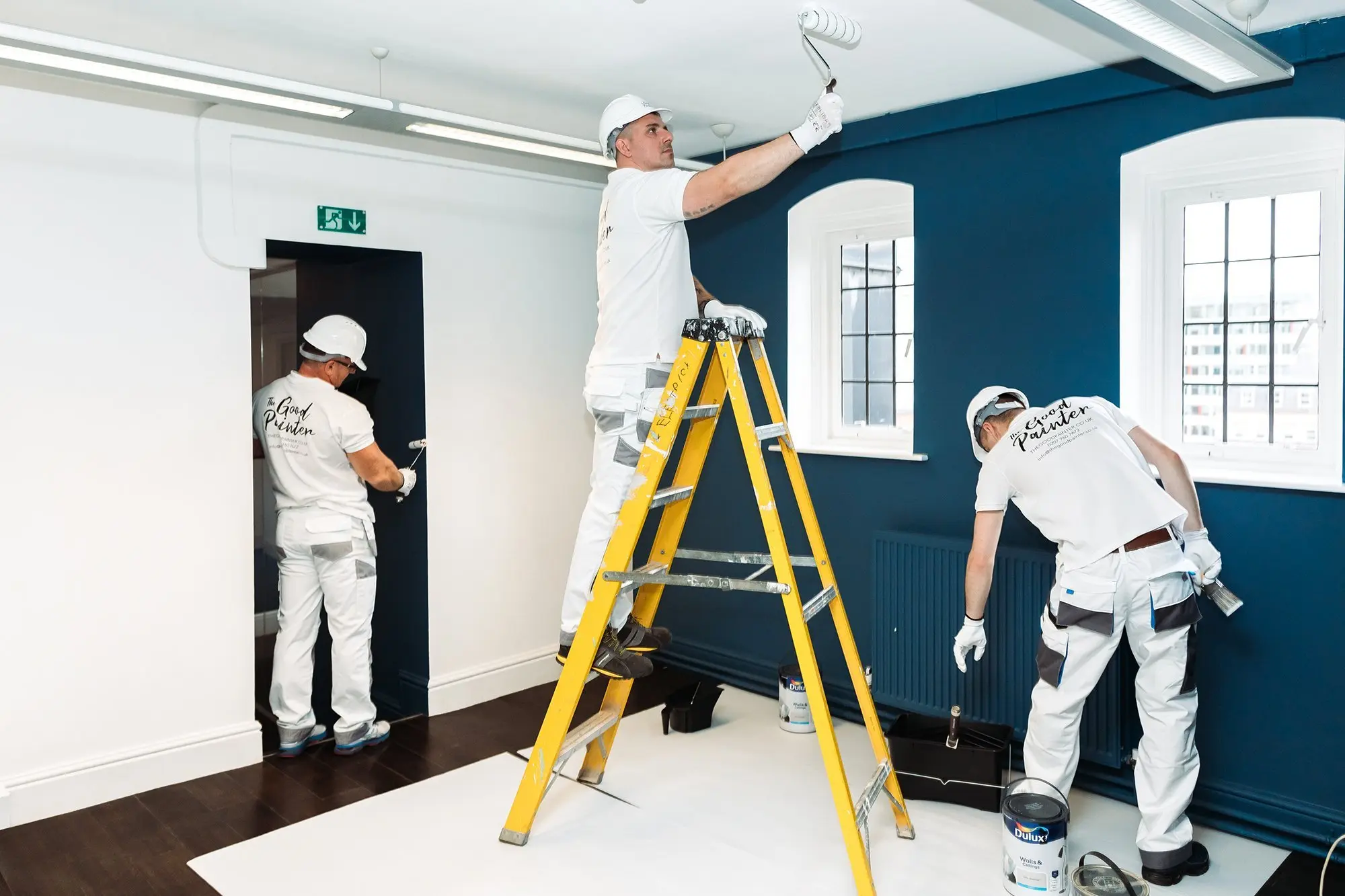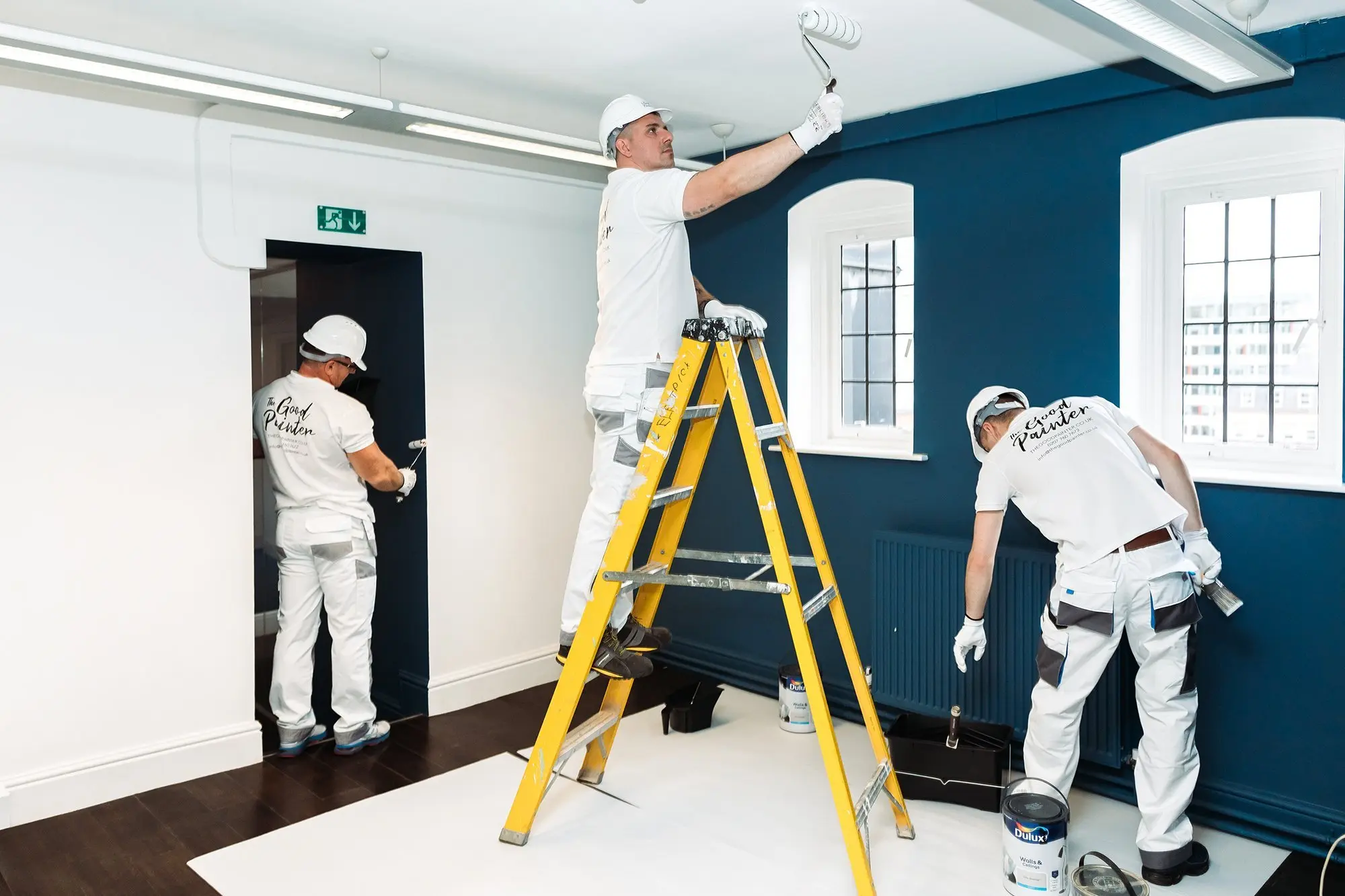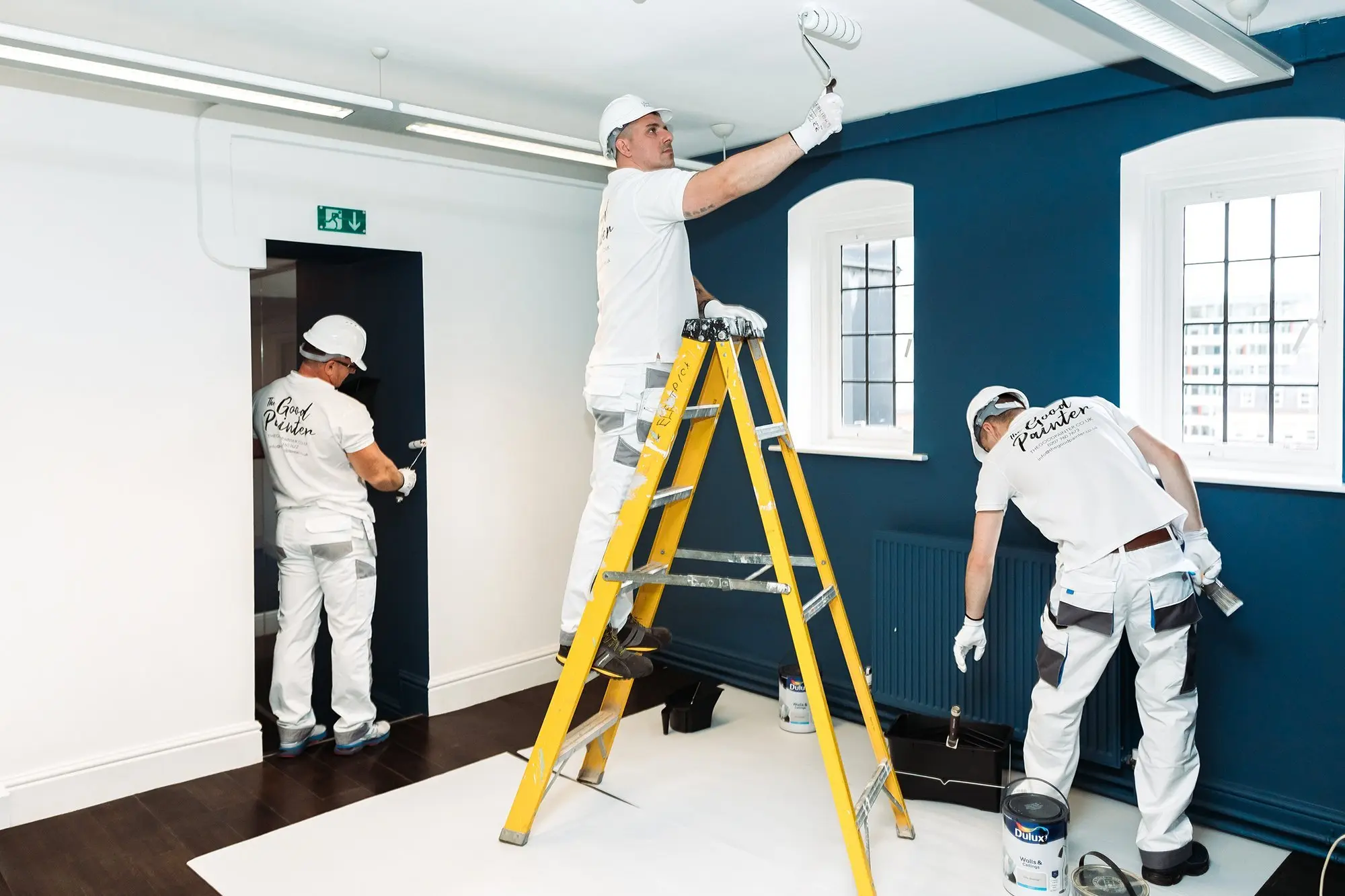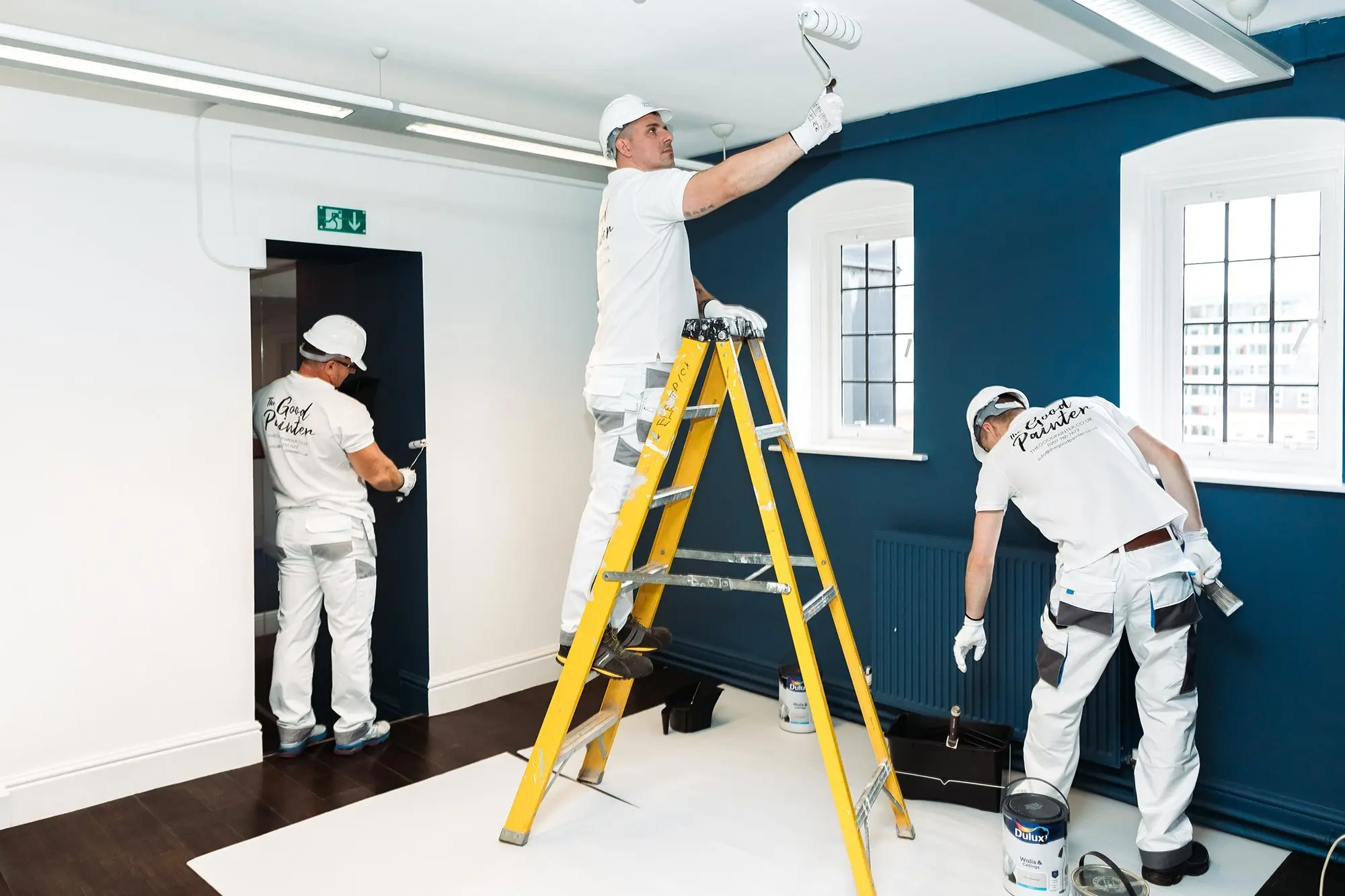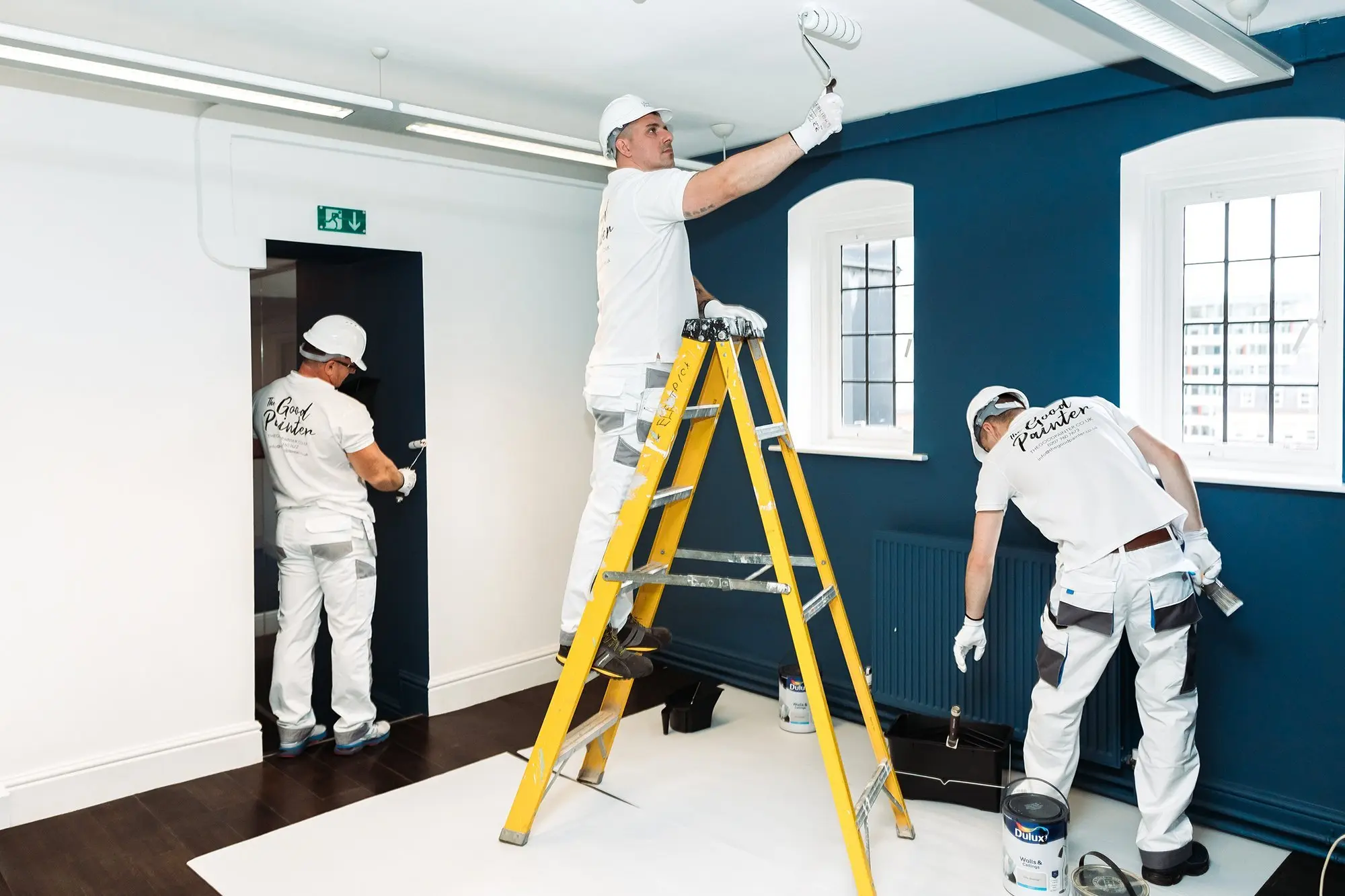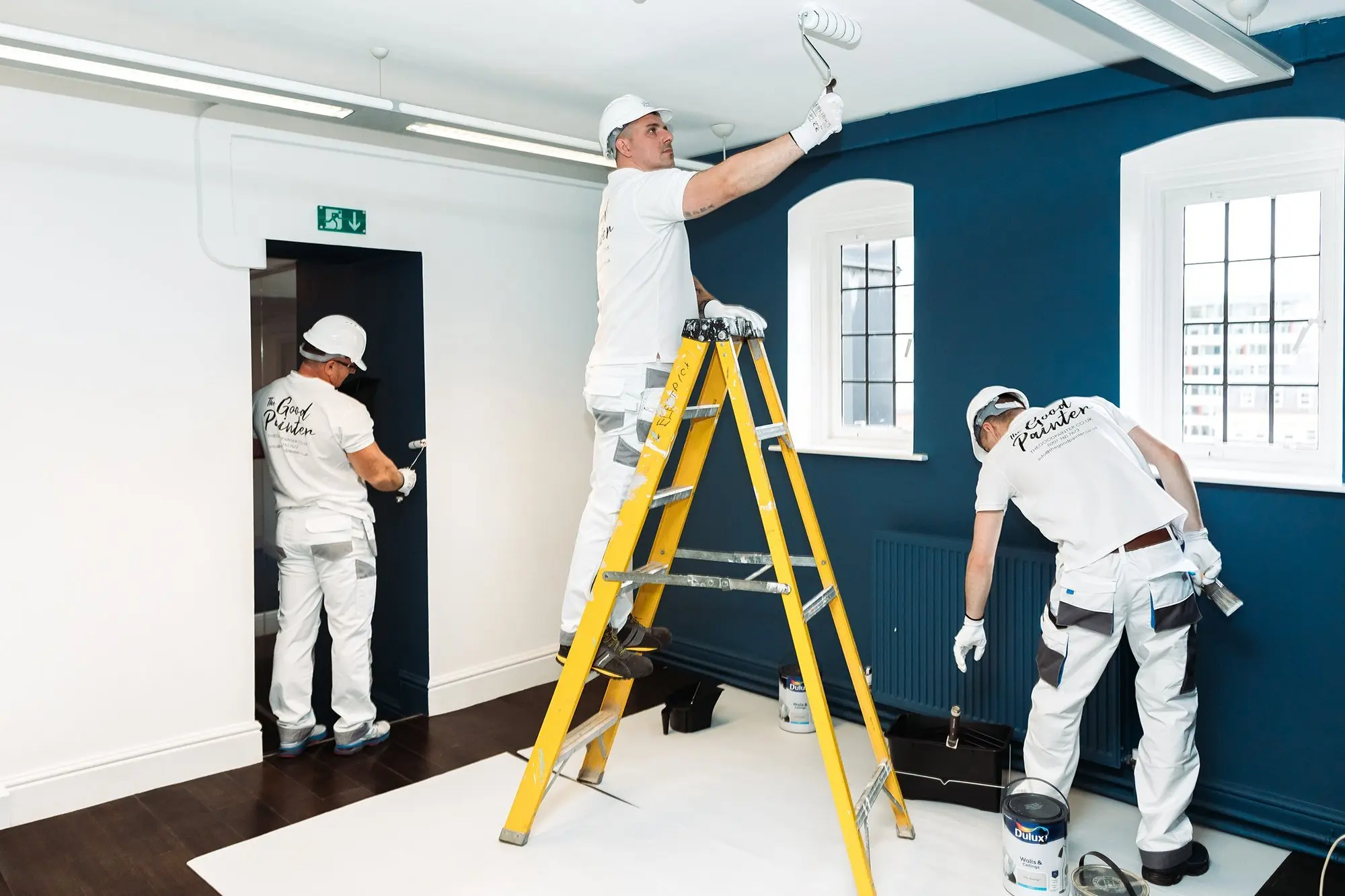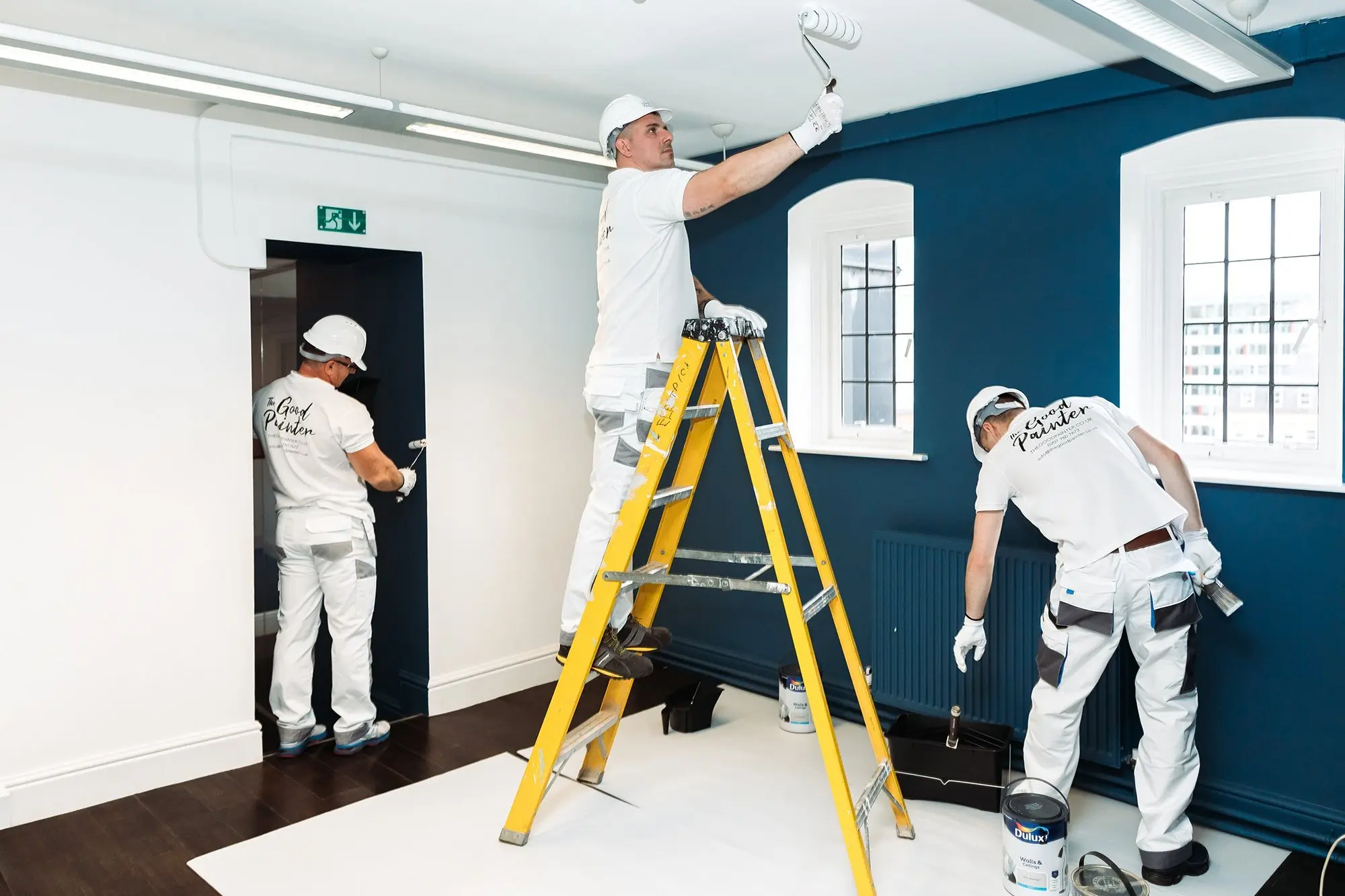As a painter and decorator running your own business, protecting your employees should be one of your top prio…
Residential Painter Insurance: Essential Protection for House Painting Professionals
Introduction
Residential painting is a skilled trade that brings beauty and protection to homes across the UK. However, working in people's homes comes with unique risks and responsibilities that require specialized insurance coverage. Whether you're an independent painter or run a residential painting business, having the right insurance protection is crucial for your financial security and professional reputation.
This comprehensive guide explores everything residential painters need to know about insurance coverage, from essential policies to industry-specific risks and how to choose the right protection for your painting business.
Why Residential Painters Need Specialized Insurance
Working as a residential painter involves numerous risks that standard insurance policies may not adequately cover. You're working with paints, solvents, and equipment in customers' homes, handling valuable furnishings, and responsible for delivering professional results that meet homeowners' expectations.
The residential painting industry faces unique challenges including accidental property damage, paint spillages on expensive carpets or furniture, ladder accidents, and potential disputes over color matching or finish quality. Without proper insurance coverage, a single incident could result in costly claims that threaten your business's survival.
Essential Insurance Coverage for Residential Painters
Public Liability Insurance
Public liability insurance is fundamental for any residential painter. This coverage protects you against claims for accidental injury to third parties or damage to their property while you're working. For residential painters, this might include scenarios like accidentally knocking over a valuable ornament, paint dripping onto expensive flooring, or a customer slipping on wet paint.
Most residential painting contracts require proof of public liability insurance, typically with coverage of at least £1-2 million. This insurance gives homeowners confidence that they're protected if something goes wrong during your work.
Professional Indemnity Insurance
Professional indemnity insurance protects residential painters against claims of professional negligence or failure to deliver services as promised. This might include situations where paint color doesn't match what was agreed, finish quality is disputed, or advice given about paint types proves inadequate.
For residential painters, professional indemnity coverage is particularly important when providing color consultation services, recommending specific paint products, or advising on surface preparation requirements.
Employers' Liability Insurance
If you employ staff, even part-time helpers or apprentices, employers' liability insurance is legally required in the UK. This coverage protects against claims from employees who suffer injury or illness as a result of their work.
In residential painting, common workplace injuries might include falls from ladders, repetitive strain injuries from painting motions, or respiratory issues from paint fumes. Employers' liability insurance ensures you can meet compensation claims and legal costs.
Tools and Equipment Insurance
Residential painters rely on specialized tools and equipment including brushes, rollers, spray equipment, ladders, and scaffolding. Tools and equipment insurance covers theft, damage, or loss of these essential items.
This coverage is particularly valuable for residential painters who transport equipment between different job sites and may leave tools overnight at customer properties. The policy can cover replacement costs and help minimize business disruption.
Commercial Vehicle Insurance
Most residential painters need vehicles to transport equipment and materials between job sites. Standard personal car insurance won't cover business use, so commercial vehicle insurance is essential.
This coverage should include protection for tools and materials carried in the vehicle, as residential painters often transport valuable equipment and paint supplies worth thousands of pounds.
Key Risks in Residential Painting
Property Damage Risks
Working in occupied homes presents numerous opportunities for accidental damage. Paint spillages on carpets, furniture, or fixtures can result in expensive cleaning or replacement costs. Ladder placement might damage guttering or exterior surfaces, while moving furniture could result in scratches or breakages.
Personal Injury Risks
Residential painting involves working at height, handling chemicals, and operating in spaces shared with homeowners and their families. Slip and trip hazards from wet paint or equipment placement can lead to injury claims from customers or visitors.
Professional Disputes
Color matching disputes are common in residential painting, particularly when customers have specific expectations about paint appearance under different lighting conditions. Disagreements over finish quality, coverage, or durability can lead to professional indemnity claims.
Theft and Vandalism
Tools and equipment left at residential properties overnight or during breaks are vulnerable to theft. Paint and materials stored on-site can also be targets for vandalism or theft, particularly on longer projects.
Weather-Related Risks
External residential painting work is weather-dependent, and unexpected rain or extreme temperatures can damage work in progress or delay completion. This can lead to additional costs and potential disputes with customers.
Choosing the Right Insurance Provider
Industry Experience
Select an insurance provider with specific experience in covering residential painters and decorators. They'll understand the unique risks you face and can tailor coverage accordingly.
Coverage Flexibility
Look for insurers who offer flexible coverage options that can adapt as your business grows. You might need different coverage levels for different types of residential projects.
Claims Support
Choose an insurer with a strong reputation for claims handling. When incidents occur, you need prompt, professional support to resolve issues quickly and maintain customer relationships.
Competitive Pricing
While cost shouldn't be the only factor, ensure you're getting competitive rates for comprehensive coverage. Consider the total value proposition, including coverage breadth and service quality.
Cost Factors for Residential Painter Insurance
Business Size and Turnover
Larger residential painting businesses with higher annual turnover typically pay higher premiums due to increased exposure to risk.
Coverage Levels
Higher coverage limits result in higher premiums, but provide better protection against major claims that could threaten your business.
Claims History
A clean claims history can help reduce premiums, while previous claims may increase costs. Implementing strong health and safety practices can help maintain a good claims record.
Geographic Location
Insurance costs can vary by location, with urban areas sometimes commanding higher premiums due to increased risk exposure.
Risk Management for Residential Painters
Health and Safety Practices
Implement comprehensive health and safety procedures including proper ladder safety, adequate ventilation when using solvent-based paints, and appropriate personal protective equipment.
Customer Communication
Clear communication about project scope, timelines, and expectations can help prevent disputes. Document agreements in writing and take before and after photographs.
Quality Control
Maintain high standards of workmanship through proper surface preparation, quality materials, and attention to detail. This reduces the likelihood of professional indemnity claims.
Secure Storage
Implement security measures for tools and equipment, including secure vehicle storage and careful consideration of overnight storage at customer properties.
Legal and Regulatory Considerations
Health and Safety Regulations
Residential painters must comply with health and safety regulations including proper handling of hazardous substances and working at height regulations.
Environmental Regulations
Proper disposal of paint waste and compliance with environmental regulations is essential, particularly when working with older properties that may contain lead paint.
Consumer Protection
Understanding consumer rights and regulations helps ensure you meet legal obligations when working in residential properties.
Making a Claim: What to Expect
Immediate Steps
If an incident occurs, ensure everyone's safety first, then document the scene with photographs and gather witness statements if appropriate. Notify your insurance provider as soon as possible.
Claims Process
Your insurer will investigate the claim, which may include site visits and expert assessments. Cooperate fully with the investigation and provide all requested documentation.
Resolution
Most claims are resolved through negotiation between insurers. Your policy should cover legal costs if court proceedings become necessary.
Growing Your Residential Painting Business with Proper Insurance
Customer Confidence
Comprehensive insurance coverage demonstrates professionalism and gives customers confidence in choosing your services. Many homeowners specifically look for insured contractors.
Contract Opportunities
Some residential painting contracts, particularly for higher-value properties, require specific insurance coverage levels. Adequate insurance opens doors to more lucrative opportunities.
Business Expansion
As your residential painting business grows, your insurance can adapt to provide coverage for additional employees, larger projects, and expanded service offerings.
Frequently Asked Questions
Do I need insurance for small residential painting jobs?
Yes, even small jobs carry risks that could result in significant claims. Insurance provides essential protection regardless of project size.
What if I only work part-time as a residential painter?
Part-time painters still need appropriate insurance coverage. Many insurers offer policies suitable for smaller operations.
Does my insurance cover work on listed buildings?
Standard policies may have restrictions for listed or heritage buildings. Check with your insurer about coverage for specialized residential properties.
What happens if paint fumes cause health issues for residents?
This could potentially be covered under public liability insurance, depending on the circumstances and policy terms.
Can I get insurance if I'm just starting my residential painting business?
Yes, new businesses can obtain insurance coverage. Some insurers specialize in covering start-up painting contractors.
Conclusion
Residential painter insurance is not just a business expense – it's an investment in your professional future and peace of mind. The right insurance coverage protects against the unique risks of working in people's homes while demonstrating your commitment to professionalism.
From public liability coverage that protects against accidental damage to professional indemnity insurance that covers disputes over workmanship, comprehensive insurance enables you to focus on delivering excellent painting services without worrying about potential financial consequences of unforeseen incidents.
Take time to assess your specific risks, compare coverage options, and choose an insurance package that provides adequate protection for your residential painting business. With proper insurance in place, you can build customer confidence, pursue growth opportunities, and establish a successful long-term painting business.
Contact Insure24 today at 0330 127 2333 to discuss your residential painter insurance needs and get a tailored quote that protects your business and supports your professional goals.


 0330 127 2333
0330 127 2333
